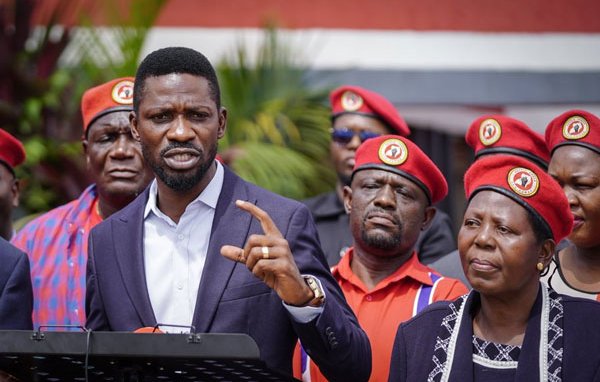Kampala, Uganda | In September 2021, the Inter Party Organization for Dialogue (IPOD) extended an invitation to the National Unity Platform (NUP) and the People’s Progressive Party (PPP), both parliamentary parties, to join its ranks as it drafted a new Memorandum of Understanding (MoU) seeking feedback from former members.
At the time, NUP declined the invitation. In a written statement, Secretary-General David Lewis Rubongoya criticized IPOD for being used to legitimize a regime he described as repressive and dismissive of democratic norms. Rubongoya argued that instead of fostering multiparty democracy, the platform had been exploited for political gain. He further characterized IPOD’s decade-long existence as largely symbolic, with meetings amounting to little more than “tea and photo opportunities.”
IPOD was originally established in 2017 through a three-year MoU signed by five political parties the National Resistance Movement (NRM), Forum for Democratic Change (FDC), Democratic Party (DP), Uganda People’s Congress (UPC), and Justice Forum Party (JEEMA) to encourage interparty dialogue. At the time, former NUP spokesperson Alex Waiswa Mufumbiro noted in a televised clip that President Museveni allegedly sought NUP’s participation to stage a photo opportunity with party leader Robert Kyagulanyi, also known as Bobi Wine, a scenario he described as improbable unless a political transition occurred.
Several years on, NUP has now expressed interest in joining IPOD, prompting questions about the motivations behind the reversal. Analysts suggest the move may be driven less by a commitment to democratic dialogue than by financial considerations, as substantial funds are allocated to parties through the Electoral Commission. Critics view this as evidence of inconsistency in the party’s approach.
NUP formalized its intention in a letter dated October 7, 2025, from Secretary-General Rubongoya to the IPOD secretariat. Initially met with skepticism, the letter’s authenticity was later confirmed. In its October 10 response, IPOD welcomed NUP’s readiness to engage in constructive dialogue but emphasized that membership requires adherence to formal procedures outlined in its MoU. According to Article 5.2.7, a party must first submit a formal written expression of interest to the Secretary to the Council before signing the MoU.
Observers note that this is not the first instance of apparent inconsistency within NUP. In previous years, party leader Robert Kyagulanyi publicly refused to participate in presidential elections under the leadership of Justice Simon Byabakama, yet he now actively campaigns across the country. By signing the MoU to join IPOD, NUP is effectively signaling cooperation with Museveni and other political parties, despite its earlier stance of non-engagement.
The party’s renewed participation in IPOD highlights the complexities of Uganda’s political landscape, where strategic considerations, funding, and the pursuit of influence continue to shape the actions of key players.
